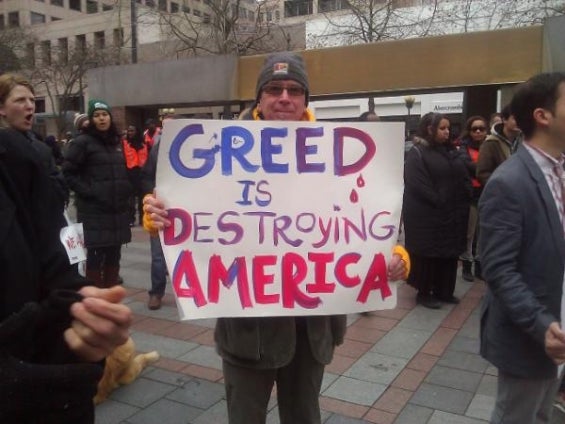Uncategorized
The Income Gap is Worse Than You Think

There’s been a lot of talk about how the top one percent has flourished in recent years while those at the bottom of the economic ladder stagnated. But a new report gives a full picture of how a middle class existence has become more difficult to achieve for everyday Americans over the last 35 years while the wallets of the rich got fatter.
The real economy has doubled in size since 1980. But for workers in the bottom half have seen nearly no economic benefit from it, despite existing social programs meant to lend a hand to this population. The result is some 117 million adults stuck in place despite the pre-tax income per adult in the U.S. growing by 60 percent on average.
“As a result, the bottom 50% income share has collapsed from about 20% in 1980 to 12% in 2014,” economists Thomas Piketty, Emmanuel Saez and Gabriel Zucman found. “In the meantime, the average pre-tax income of top 1% adults rose from $420,000 to $1.3 million, and their income share increased from about 12% in the early 1980s to 20% in 2014. The two groups have basically switched their income shares, with 8 points of national income transferred from the bottom 50% to the top 1%.”
As a result, the nation’s top 1% now make nearly twice as much as the bottom half, the document finds, and on average earn 81 times more than those in the bottom half. By comparison, in 1980 they made 27 times more.
The gap has gotten so wide that even if government sought to intervene to strengthening the social safety net, it would likely fail short of dramatic changes. That is why finding ways to boost income, through union membership and raising in the minimum wage, are so essential. Union jobs pay on average more than $10,000 a year more than non-union ones do, while increasing the federal minimum wage from the current $7.25 an hour to $15 would more than double wages for many low-income workers.
The time for excuses is over. This report proves that millions of hard-working Americans are suffering at the expense of those who already have plenty. America needs a policy shift to save its families.